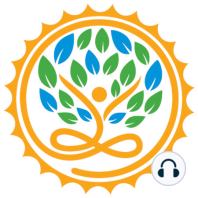42 min listen

How to Interpret Your White Blood Cell Count
How to Interpret Your White Blood Cell Count
ratings:
Length:
45 minutes
Released:
Nov 6, 2020
Format:
Podcast episode
Description
There’s a common misconception that you need to run expensive advanced biomedical tests to fix your health. Over the years we’ve found just the opposite, that you can learn much of what you need to know from basic blood chemistry. Perhaps the best example is the information gained from a Complete Blood Count (CBC) with Differential. As the most common blood test, it is widely used to assess general health status, screen for disorders, and to evaluate nutritional status. On this podcast, NBT Scientific Director Megan Hall and I are talking about leukocytes, also known as white blood cells (WBCs), as critical elements of the CBC blood test. Megan discusses the various types of leukocytes and what it means when your count is outside the reference range. We talk about what leukocytes tell you about your nutritional status, why some people “never get sick” as well as signs you’ve got chronic inflammation or physiological stress. Megan also discusses how to use this information to determine the next steps in your health journey. Here’s the outline of this interview with Megan Hall: [00:01:04] Forum post: Chronically Low White Blood Cell Count. Get access when you support us on Patreon. [00:01:45] Leukocytes = White Blood Cells (WBCs) found on CBC with differential blood test. [00:02:58] Different types of white blood cells. [00:04:18] Phagocytosis video. [00:06:10] Absolute vs relative counts of WBCs. [00:09:15] Optimal range of WBCs in relation to all-cause mortality. [00:11:25] Baltimore Longitudinal Study on Aging: Ruggiero, Carmelinda, et al. "White blood cell count and mortality in the Baltimore Longitudinal Study of Aging." Journal of the American College of Cardiology 49.18 (2007): 1841-1850. [00:12:57] Study: Shah, Anoop Dinesh, et al. "White cell count in the normal range and short-term and long-term mortality: international comparisons of electronic health record cohorts in England and New Zealand." BMJ open 7.2 (2017): e013100. [00:15:30] bloodsmart.ai. [00:18:00] Why WBCs might be high: Leukocytosis. [00:18:45] Paper: WBCs are predictive of all cause mortality: Crowell, Richard J., and Jonathan M. Samet. "Invited commentary: why does the white blood cell count predict mortality?." American Journal of Epidemiology 142.5 (1995): 499-501. [00:20:00] Podcast: Air Pollution Is a Cause of Endothelial Injury, Systemic Inflammation and Cardiovascular Disease, with Arden Pope, PhD. [00:21:57] Association of leukocytosis with metabolic syndrome; Study: Babio, Nancy, et al. "White blood cell counts as risk markers of developing metabolic syndrome and its components in the PREDIMED study." PloS one 8.3 (2013): e58354. [00:22:15] Megan's outline for this podcast. [00:22:41] What to do if you have elevated WBC counts. [00:22:54] Impact of stress; Studies: 1. Nishitani, Naoko, and Hisataka Sakakibara. "Association of psychological stress response of fatigue with white blood cell count in male daytime workers." Industrial health 52.6 (2014): 531-534. and 2. Jasinska, Anna J., et al. "Immunosuppressive effect and global dysregulation of blood transcriptome in response to psychosocial stress in vervet monkeys (Chlorocebus sabaeus)." Scientific reports 10.1 (2020): 1-12. [00:23:32] Dr. Simon Marshall and Lesley Paterson; Podcast: How to Manage Stress, with Simon Marshall, PhD. [00:24:08] Reasons WBC counts might be low; Leukopenia. [00:27:57] "I never get sick". [00:30:40] What to do if your WBCs are low. [00:30:56] Effects of low energy availability: Studies: 1. Johannsen, Neil M., et al. "Effect of different doses of aerobic exercise on total white blood cell (WBC) and WBC subfraction number in postmenopausal women: results from DREW." PloS one 7.2 (2012): e31319. and 2. Sarin, Heikki V., et al. "Molecular pathways mediating immunosuppression in response to prolonged intensive physical training, low-energy availability, and intensive weight loss." Frontiers in immunology 10 (2019): 907. [00:31:44] Articles by Megan on energy availa
Released:
Nov 6, 2020
Format:
Podcast episode
Titles in the series (100)
UCAN Superstarch with Seth Bronheim: has been an extraordinary tool that allowed me to make the transition from sugar burning age grouper to ketogenic pro. Registered Dietitian and Director of Nutrition at UCAN explains why Superstarch works so well and why it’s not just for athletes.... by Nourish Balance Thrive